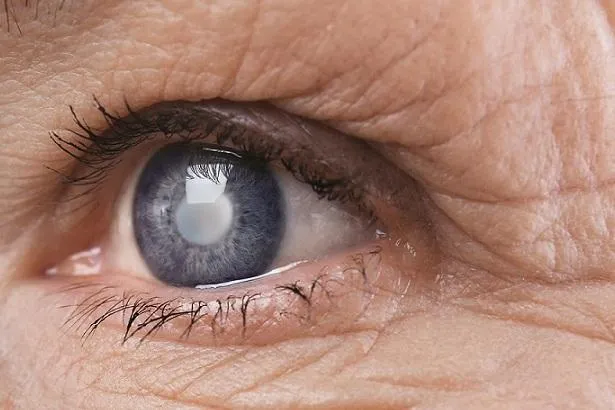Cataracts
What are cataracts?
A Cataract is a "clouding" of the lens in your eye. As light passes through the cataractous lens, it is diffused or scattered. The result is blurred or defocused vision.
Cataracts Symptoms
Clouded, blurred or dim vision, difficulty with vision at night, sensitivity to light and glare, seeing "halos" around lights, fading or yellowing of colors, double vision in single eye, frequent changes in eyeglass or contact lens prescription.
Cataracts Treatment
If the symptoms of early cataract are not improved with new eyeglasses, anti-glare sunglasses or magnifying lenses, surgery is needed. Surgery involves removing the cloudy lens and replacing it with an artificial lens.


Cataract Diagnosis
To determine whether you have a cataract, Dr. Keulder will review your medical history and symptoms, and perform an eye examination. He may conduct several tests, including: a visual acuity test, using an eye chart to measure how well you can read a series of letters, a slit lamp test allows Dr. Keulder to see the structures at the front of your eye under magnification, a retinal exam to examine your lens, using a slit lamp or an ophthalmoscope, applanation tonometry measures fluid pressure in your eye.

Cataract Surgery
Cataract surgery involves removing the clouded natural lens and replacing it with a clear intraocular lens (IOL), which remains permanently in the eye. In cases where an IOL isn’t suitable, vision may be corrected with glasses or contact lenses.
Dr. Keulder performs cataract surgery on an outpatient basis using local anesthetic, allowing patients to remain awake during the procedure. While generally safe, the surgery carries risks such as infection, bleeding, and retinal detachment. Mild discomfort is expected postoperatively, with healing typically completed within a few weeks.
If both eyes require surgery, the second procedure is scheduled after the first has healed
When to consider Cataract surgery
When your prescription glasses can't clear your vision, the only effective treatment for cataracts is surgery. Most eye doctors suggest considering cataract surgery when your cataracts begin to affect your quality of life or interfere with your ability to perform normal daily activities, such as reading or driving at night. If you choose not to undergo cataract surgery now, your Dr. Keulder may recommend periodic follow-up exams to see if your cataracts are progressing.
